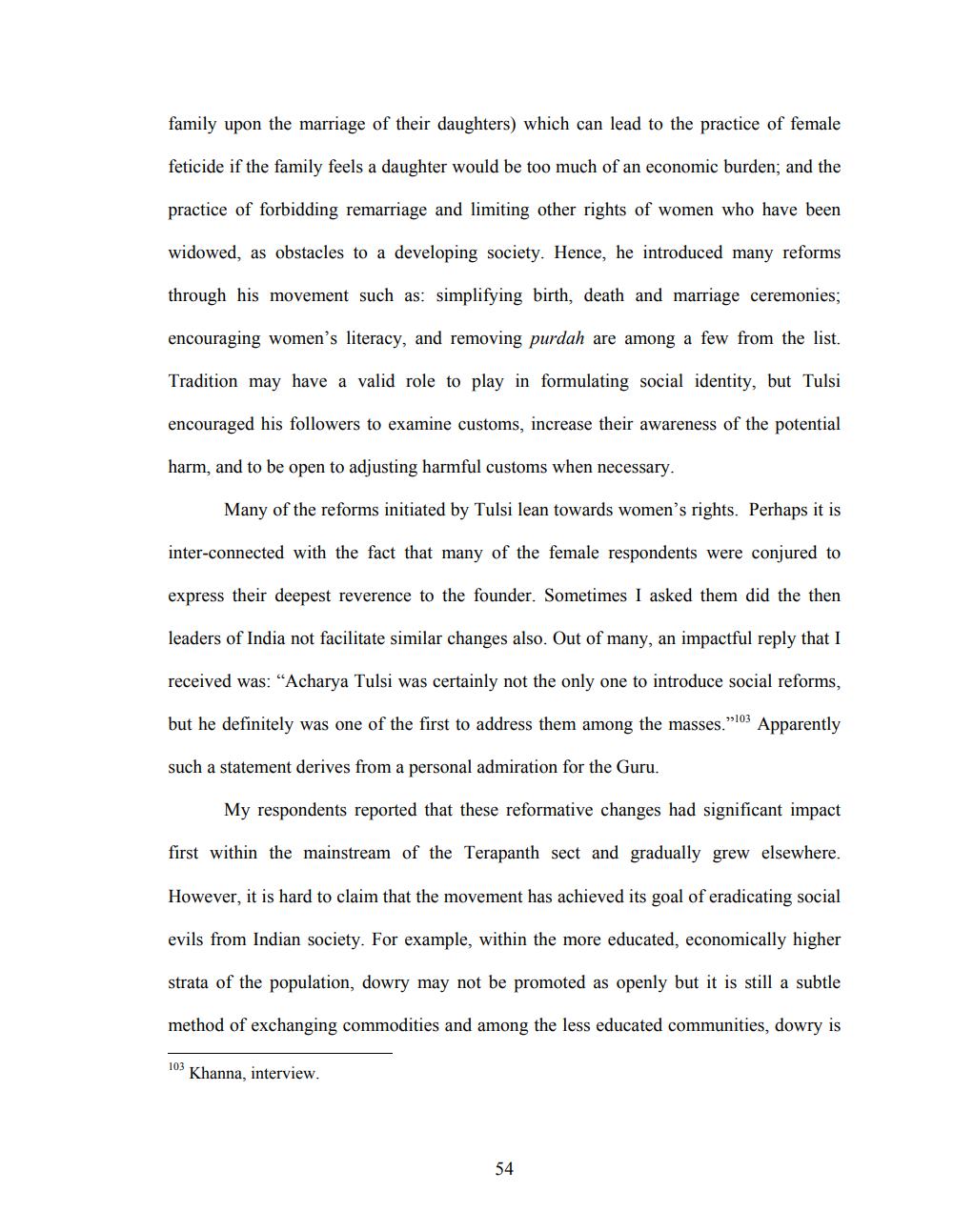________________
family upon the marriage of their daughters) which can lead to the practice of female
feticide if the family feels a daughter would be too much of an economic burden; and the
practice of forbidding remarriage and limiting other rights of women who have been
widowed, as obstacles to a developing society. Hence, he introduced many reforms
through his movement such as: simplifying birth, death and marriage ceremonies;
encouraging women's literacy, and removing purdah are among a few from the list.
Tradition may have a valid role to play in formulating social identity, but Tulsi
encouraged his followers to examine customs, increase their awareness of the potential
harm, and to be open to adjusting harmful customs when necessary.
Many of the reforms initiated by Tulsi lean towards women's rights. Perhaps it is
inter-connected with the fact that many of the female respondents were conjured to
express their deepest reverence to the founder. Sometimes I asked them did the then
leaders of India not facilitate similar changes also. Out of many, an impactful reply that I
received was: “Acharya Tulsi was certainly not the only one to introduce social reforms,
but he definitely was one of the first to address them among the masses."103 Apparently
such a statement derives from a personal admiration for the Guru.
My respondents reported that these reformative changes had significant impact
first within the mainstream of the Terapanth sect and gradually grew
elsewhere.
However, it is hard to claim that the movement has achieved its goal of eradicating social
evils from Indian society. For example, within the more educated, economically higher
strata of the population, dowry may not be promoted as openly but it is still a subtle
method of exchanging commodities and among the less educated communities, dowry is
103 Khanna, interview.
54




